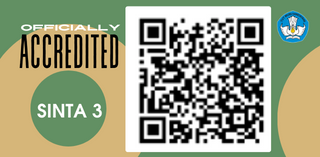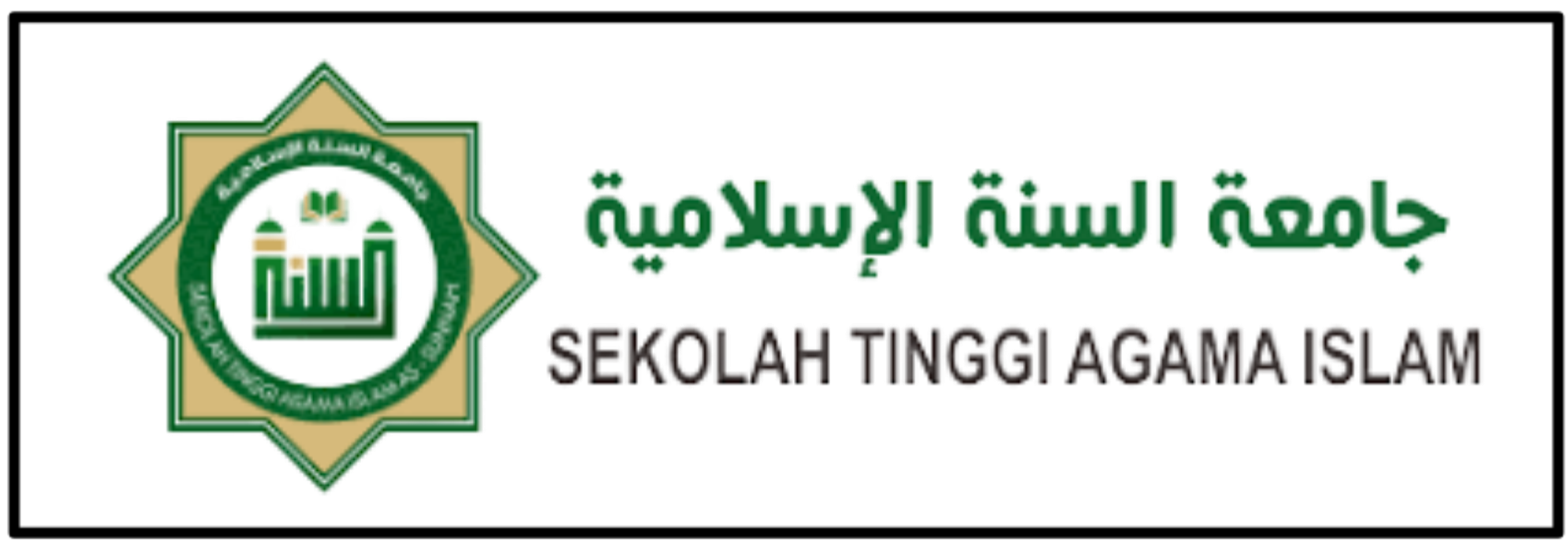Comparative Study of Islamic Religious Education (PAI) Leraning Management at Elementary School
Abstract
Islamic religious education learning at each educational institution has a different management pattern even though at one level within the education unit level, differences in management need to be disclosed as an effort to obtain information related to the strengths and weaknesses of each institution, related to this, this study aimed to find out the management of Islamic religious education carried out by teachers at two public elementary schools. From the data analysis conducted, Islamic religious education management at SD Negeri 02 and 13 Petok Pasaman are: 1) Islamic teachers carry out various preparations and designs before implementing learning, the preparation of learning plans was carried out through studies of various aspects related to learning. 2) the learning implementation by the teachers of SDN 02 was quite creative and innovative, in contrast to the Islamic religious education at SD Negeri 13 which still relies on conventional aspects of learning methods and media. 3)Islamic teacher of SD Negeri 02 Petok conducted a conceptual, structured, and systematic learning evaluation.
References
Aprianto, Mahyudin Ritonga, Yoni Marlius, and Raihan Nusyur. “The Influence of Using Audio- Lingual Method on Students’ Speaking Skill in Madrasah Diniyah Takmiliyah Awwaliyyah.” Izdihar: Journal of Arabic Language Teaching, Linguistics, and Literature 3, no. 2 (2020): 149–62. https://doi.org/https://doi.org/10.22219/jiz.v3i2.12514.
Clarck, Catherine, and Brue M. Shore. Educating Students with High Ability. France: UNESCO Publishing, 1998.
Darling-hammond, Linda, Lisa Flook, Channa Cook-harvey, Brigid Barron, and David Osher. “Implications for Educational Practice of the Science of Learning and Development.” Applied Developmental Science 24, no. 2 (2020): 97–140. https://doi.org/10.1080/10888691.2018.1537791.
Ghavifekr, Simin, and Wan Athirah Wan Rosdy. “Teaching and Learning with Technology: Effectiveness of ICT Integration in Schools.” International Journal of Research in Education and Science (IJRES) 1, no. 2 (2015): 175–91.
Hager, Paul, Alison Lee, and Ann Reich. Practice, Learning and Change: Practice-Theory Perspectives on Prodessional Learning. New York: Springer Dordrecht Heidelberg, 2012.
Hakim, Rosniati, Khadijah, Mahyudin Ritonga, Weti Susanti, and Rahmi. “Institute Quality Improvement Through Management Training of Accreditation Preparation in TK Aisyiyah Bustanul Athfal Padang.” In Advances in Social Science, Education and Humanities Research, Volume 449 Proceedings of the International Conference of Early Childhood Education (ICECE 2019), 44:55–65. Padang: ATLANTIS PRESS Advances in Social Science, Education and Humanities Research (ASSEHR), 2020. https://doi.org/https://doi.org/10.2991/assehr.k.200715.012.
Harris, Roger, and Berwyn Clayton. “The Current Emphasis on Learning Outcomes.” International Journal of Training Research 17, no. 2 (2019): 93–97. https://doi.org/10.1080/14480220.2019.1644777.
L, Idrus. “Evaluasi Dalam Proses Pembelajaran.” ADAARA: Jurnal Manajemen Pendidikan Islam 9, no. 2 (2019): 920–35.
Maharani, Deviana Ika, M. Huda A.Y, and Imron Arifin. “Manajemen Pembelajaran Pondok Pesantren.” JMSP Journal Manajemen Dan Supervisi Pendidikan 1, no. 1 (2016): 17–23.
Outhwaite, Laura A, Anthea Gulliford, and Nicola J Pitchford. “A New Methodological Approach for Evaluating the Impact of Educational Intervention Implementation on Learning Outcomes.” International Journal of Research & Method in Education 43, no. 3 (2020): 225–42. https://doi.org/10.1080/1743727X.2019.1657081.
Qasim, Muhammad, and Maskiah. “Perencanaan Pengajaran Dalam Kegiatan Pembelajaran.” Jurnal Diskursus Islam 04, no. 03 (2016): 484–92.
Ritonga, Apri Wardana, Mahyudin Ritonga, Talqis Nurdianto, Martin Kustati, Rehani, Ahmad Lahmi, Yasmadi, and Pahri. “E-Learning Process of Maharah Qira’ah in Higher Education during the Covid-19 Pandemic.” International Journal of Higher Education 9, no. 6 (2020): 227–35. https://doi.org/10.5430/ijhe.v9n6p227.
Ritonga, Mahyudin. “Desain Bahan Ajar Bahasa Arab Sains Dengan Pendekatan Whole Language.” EDUKASI: Jurnal Pendidikan Islam 5, no. 2 (2017): 001–024. https://doi.org/https://doi.org/10.5281/edukasi.v5i2.287.
Ritonga, Mahyudin, Hafni Bustami, Riki Saputra, Rosniati Hakim, Mursal, Shofwan Karim Elhusen, and Yoni Marlius. “Reformulating the Arabic Language Teaching Materials within the Framework of Generating New Cadres of Tarjih and Tajdid Ulama.” International Journal of Advanced Science and Technology 29, no. 7 (2020): 185–90.
Ritonga, Mahyudin, Alwis Nazir, and Sri Wahyuni. “Pembelajaran Bahasa Arab Berbasis Teknologi Informasi Dan Komunikasi.” Arabiyat: Jurnal Pendidikan Bahasa Arab Dan Kebahasaaraban 3, no. 1 (2016): 1–12. https://doi.org/http://dx.doi.org/10.15408/a.v3i1.2879.
———. Pengembangan Model Pembelajaran Bahasa Arab Berbasis Teknologi Informasi & Komunikasi Dalam Dialektika Revolusi Industri 4.0. Yogyakarta: Deepublish, 2020. https://books.google.co.id/books?hl=id&lr=&id=OEXYDwAAQBAJ&oi=fnd&pg=PP1&ots=sbr9Fjm__t&sig=gqKsqW7fcokp_ya5MQd1zMZfQGE&redir_esc=y#v=onepage&q&f=false.
Saggaf, M Said, Rudi Salam, and Rifka. “The Effect of Classroom Management on Student Learning Outcomes.” In The 1St International Conference on Education, Science, Art and Technology (the 1st ICESAT), 98–102, 2017.
Sartika, Fitria, and Mahyudin Ritonga. “Ta’tsir Isti’mal Al-Wasa’il Al-Sam’iyyah Al-Bashariyyah ‘Ala Nataij Ta’lim Mufradat Al-Lughah Al-’Arabiyyah Lilfashl Al-Rabi’ Fi Al-Madrasah Al-Ibtida’iyah Al-Islamiyyah Al-Hukumiyyah Parambahan Lambasi Payakumbuh.” Alfazuna 4, no. 2 (2020): 144–54. http://jurnalftk.uinsby.ac.id/index.php/alfazuna/article/view/592/261.
Shafieian, Golchin. “Defining Talent Management Components.” International Science Publication and Consulting Service 2014 (2014): 1–7. https://doi.org/10.5899/2014/acte-00182.
Sudjana, Nana. Dasar-Dasar Proses Belajar Mengajar. Bandung: Sinar Baru Algesindo, 2002.
Susanti, Elvia, Mahyudin Ritonga, and Bambang Bambang. “Pengaruh Penggunaan Media Powerpoint Terhadap Minat Belajar Bahasa Arab Siswa.” Arabiyatuna: Jurnal Bahasa Arab 4, no. 1 (2020): 179–91. https://doi.org/10.29240/jba.v4i1.1406.
Yusuf, Muhammad, Mahyudin Ritonga, and Mursal. “Implementasi Karakter Disiplin Dalam Kurikulum 2013 Pada Bidang Studi PAI Di SMA Islam Terpadu Darul Hikmah.” Jurnal Tarbiyatuna 11, no. 1 (2020): 49–60. https://doi.org/https://doi.org/10.31603/tarbiyatuna.v11i1.3437 Article.
Copyright (c) 2020 Lisawati

This work is licensed under a Creative Commons Attribution 4.0 International License.








.png)












.png)

